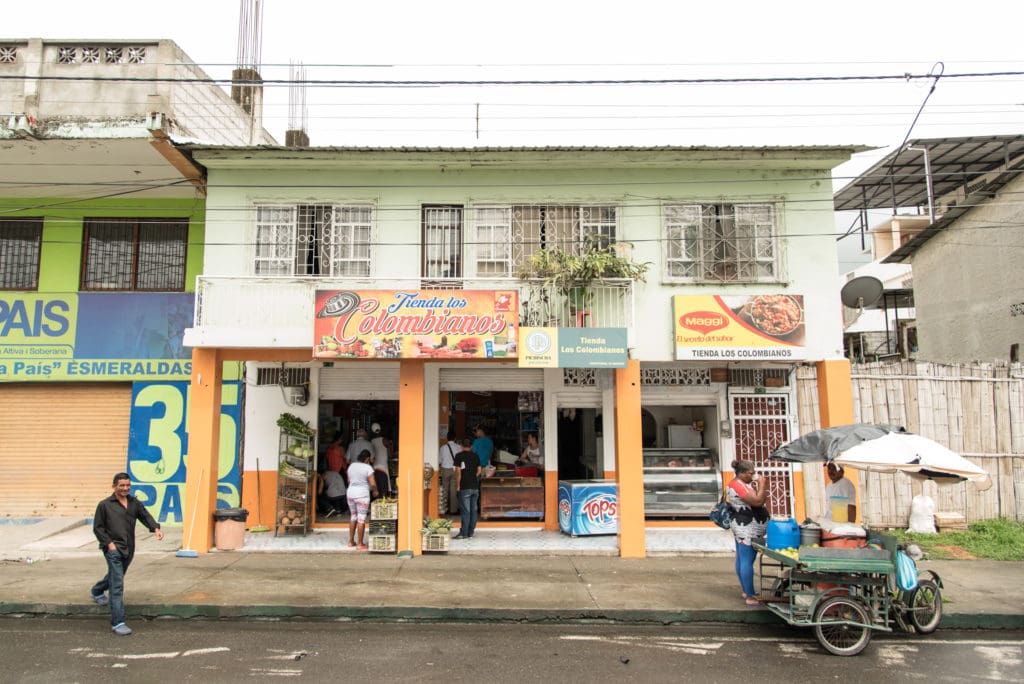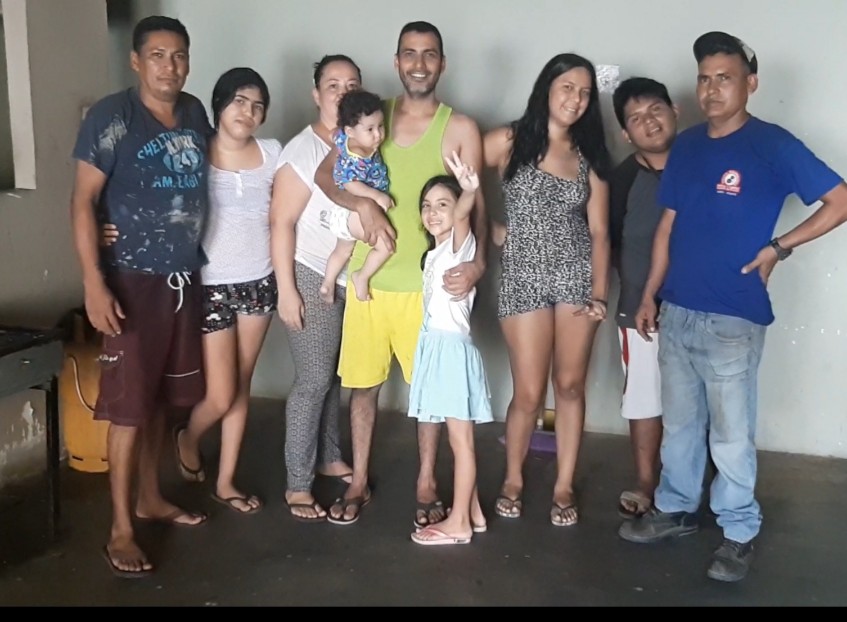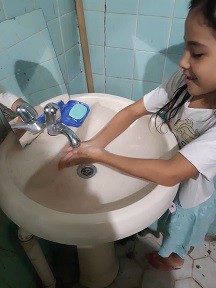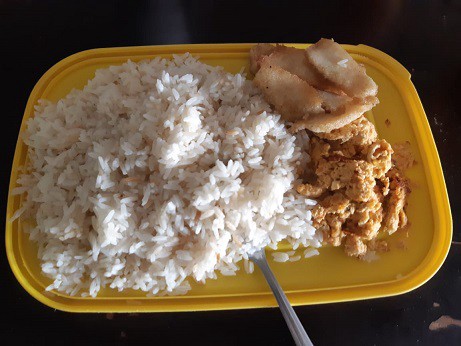
Coronavirus Has Sent Ecuador Spiraling Into an Emergency. This Is How Families Are Struggling to Adapt.
Anyinett Chacón is a WFP beneficiary in Guayaquil, Ecuador. Guayaquil is one of the country’s most populous cities, it’s also the city that’s been hit hardest by COVID-19.
As Ecuador enforces curfews and stay-at-home orders to combat the outbreak, families like Anyinett’s are struggling to adapt and keep food on the table.
Anyinett lives with his wife and two girls in a three-bedroom house that she shares with two other families. In total there are nine people at home.
His family lives from day to day, as they usually go out to sell various products to get some money to help them get by. However, the pandemic has forced them to stay home and take turns going to the supermarket with their neighbors.

Anyinett and his family (left) live with two more families in Guayaquil. Together they follow hygiene protocols and take care of their nutrition in the midst of the COVID-19 pandemic.
WFP is doing everything it can to make sure the families they served were healthy and still had enough. So, a local WFP staff member called Anyinett up to ask if they had the food and resources they needed to stay healthy, and how they were adapting to life under COVID-19.

Ayinette’s family wash their hands several times a day.
Anyinett says that hygiene is important at home. That is why they use a single pair of shoes to go outside and leave clothes outside the house when they return from their purchases. He even sets aside a separate pair of socks to go shopping, and his family washes their hands repeatedly throughout the day using soap and then alcohol gel.
As for food, they all share it to save money, but even still, they only have enough to buy lunch and dinner.

Anyinett gives his family money for lunch and dinner. Their meals are balanced.
“We try to have a balanced diet with rice, chicken stews, meat, canned goods, tuna, sardines, eggs, flour, and cheese,” Anyinett said, “and so we are combining day by day.”
Anyinett’s family is just one of millions who could be pushed deeper into hunger by COVID-19. In fact, recent reports demonstrate that the number of severely hungry people across the globe could double by the end of 2020. Learn more about COVID-19 is affecting food security, and what WFP is doing to help.
This story was written by WFP Espanol and originally appeared on WFP Historias.




